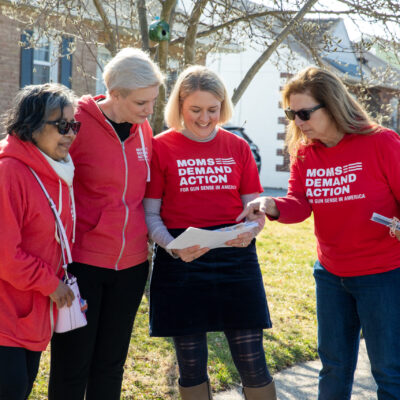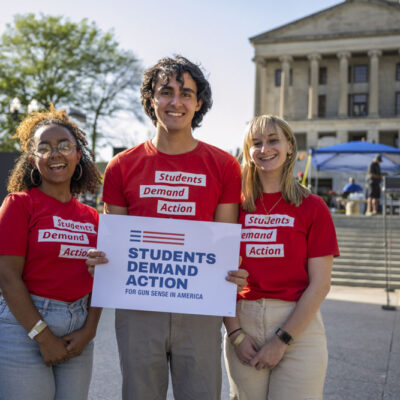VICTORY FOR GUN SAFETY IN THE COURTS: Eighth Circuit Upholds Federal Court Decision Striking Down Missouri’s Dangerous ‘Second Amendment Preservation Act’
8.26.2024
MISSOURI – In a major win for gun safety and a significant setback for the “constitutional sheriffs” movement and gun lobby agenda to undermine federal gun laws, today the United States Court of Appeals for the Eight Circuit affirmed a lower court decision striking down Missouri’s dangerous “Second Amendment Preservation Act” (SAPA) which purported to invalidate many federal gun laws, prohibited state and local officials from assisting with the enforcement of federal gun laws, and would fine local law enforcement agencies up to $50,000 for any violations.
“Claiming that federal gun laws don’t apply is good for criminals, terrible for law enforcement, and a gross violation of the Constitution. Missouri’s Second Amendment Preservation Act actively undermined public safety and made it illegal and costly for local law enforcement to do their jobs of protecting their communities,” said Eric Tirschwell, executive director for Everytown Law. “Today’s decision is another hit to the gun lobby’s effort to undermine federal gun safety laws and the rule of law. ”
“As we were reminded by the preventable shooting at CVPA High School, there are real life consequences of extremist gun laws. Us gun violence survivors know this reality far too well” said Carthesa Dillard, fellow with the Everytown Survivor Network and a volunteer with the Missouri chapter of Moms Demand Action and a gun violence survivor. Dillard’s 19-year-old son was shot and killed in 2017, in addition to her brother being shot and killed in 2014 and another brother who was shot and wounded in 2020. “Legislation like this ties the hands of law enforcement and the state and local leaders who are trying to keep our communities safe. It’s counterproductive, incredibly dangerous, and we need to focus on passing laws that are proven to save lives instead of harmful laws like this one.”
Four of the nation’s leading gun violence prevention organizations – Everytown for Gun Safety Support Fund, Brady Center to Prevent Gun Violence, Giffords Law Center, and March For Our Lives – filed an amicus brief in August 2023, urging the U.S. Court of Appeals for the Eight Circuit to find SAPA unconstitutional.
The brief reads, “Federal firearms laws serve the critical and fundamental purpose of civil society as articulated by the Constitution: to ‘insure domestic Tranquility’ and ‘promote the general welfare.’ Such laws help keep Americans safer by reducing the illegal use and purchase of firearms by persons who intend to use them in criminal ways. Missouri’s Second Amendment Preservation Act (“SAPA”) attempts to do away with those protections based upon its idiosyncratic interpretation of the U.S Constitution’s Second Amendment. As explained in the brief for the United States, SAPA purports to override the applicable federal law, which provides important safeguards on the sale of guns. As the United States has demonstrated, SAPA plainly violates the Supremacy Clause of the Constitution.”
A lawsuit filed by the Department of Justice in February 2022 alleged that Missouri’s nullification law had hindered cooperation between federal, state, and local law enforcement in enforcing federal firearms laws. As a result of the penalties associated with the law, state and local agencies had stopped sharing critical data used to solve violent crimes and withdrawn from joint federal task forces. There was also continued backlash from law enforcement, including from a chief of police in O’Fallon, Missouri who resigned in protest over the law.
The shooting at Central Visual and Performing Arts High School in St. Louis served as a tragic example of the dangers of these laws – it was a direct result of Missouri’s gun policy failures and could have been prevented if common sense gun safety measures were in place. Prior to the shooting, the shooter’s family asked law enforcement to remove firearms from the home that were ultimately used in the shooting. Because of SAPA, law enforcement believed they were unable to remove firearms from the shooter. In conducting an investigation of the shooter, police later revealed that although the shooter was prohibited from possessing a firearm under federal law, they felt powerless to act because, under SAPA, they would be penalized for enforcing or assisting in the enforcement of a federal gun law or even for contacting federal law enforcement partners to report the commission of a federal felony.




